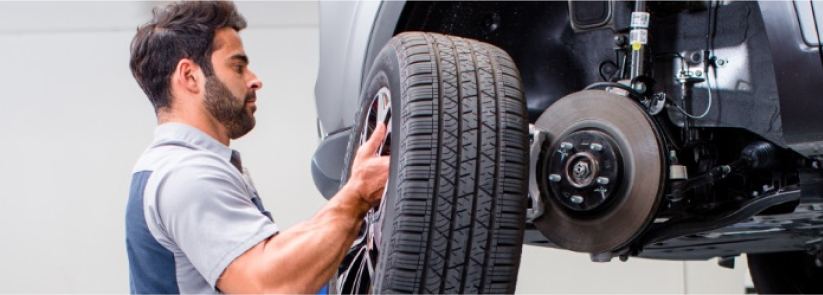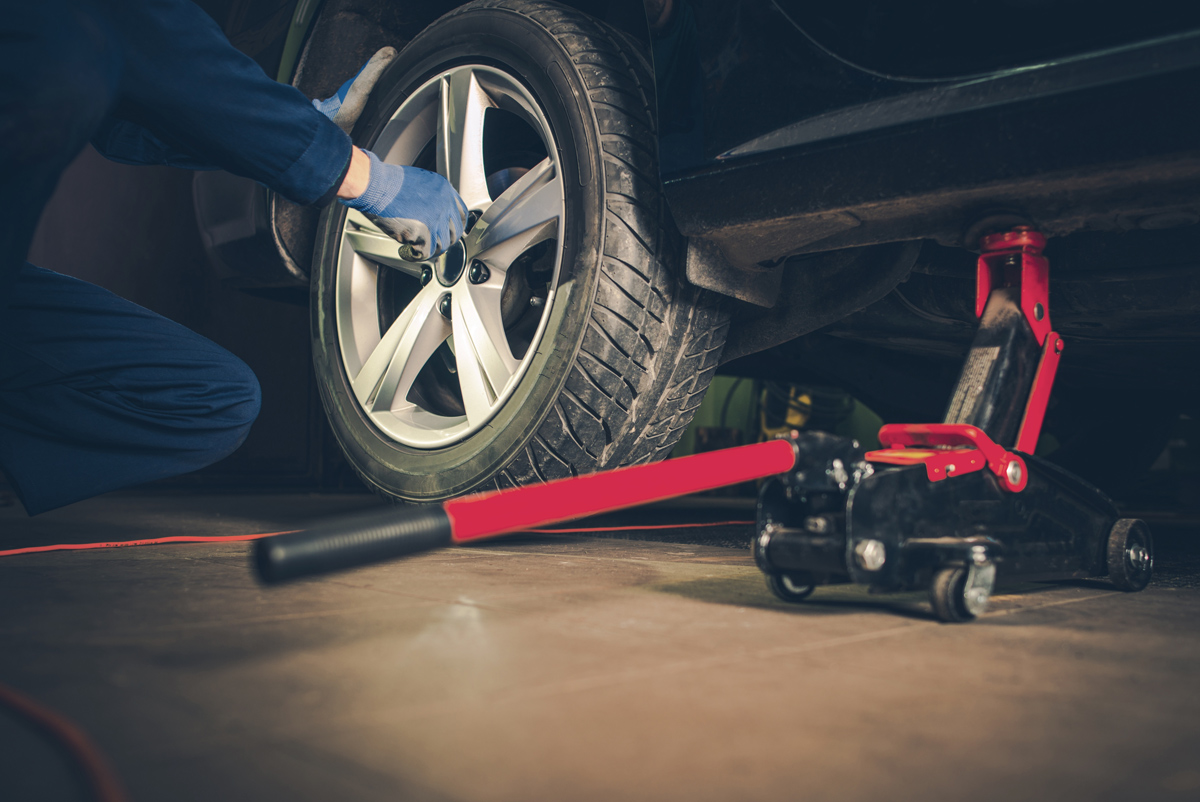The Link In Between Tire Solution and Fuel Performance
Amongst the different aspects that influence fuel performance, tire solution stands out as a crucial aspect that often goes ignored. The intricate connection in between tire maintenance and fuel economic situation is a testament to the complex operations of a car.
Value of Proper Tire Inflation
Appropriate tire rising cost of living is a crucial consider optimizing gas efficiency and guaranteeing ideal lorry efficiency. When tires are underinflated, it creates much more rolling resistance, creating the engine to function harder and burn more fuel to preserve the exact same rate. On the various other hand, overinflated tires can cause a harsher ride, uneven tire wear, and minimized traction. To discover the recommended tire stress for your vehicle, describe the owner's guidebook or the sticker label situated on the chauffeur's side door jamb.
Preserving the right tire pressure not only improves gas effectiveness however also enhances driving safety and security. Effectively filled with air tires give much better handling, braking, and overall performance on the roadway. Furthermore, they contribute to extending the life-span of the tires, saving you cash in the future by minimizing the frequency of substitutes. Regularly examining and changing tire pressure, specifically soon journeys, is an easy yet effective means to enhance your vehicle's gas economic situation and guarantee a smooth driving experience.
Effect of Tire Footstep Depth
Keeping the recommended tire pressure is necessary for ideal vehicle performance and gas performance; in a similar way, the walk depth of your tires plays a vital function in making sure security and traction on the roadway. Tire step depth directly impacts the capacity of your tires to hold the roadway surface, especially in damp or unsafe problems. Regularly evaluating your tire tread deepness and changing tires when required is an easy yet effective means to advertise both safety and security and gas effectiveness on the roadway.
Duty of Wheel Positioning in Efficiency
Making sure accurate wheel placement is important for maximizing car performance and maximizing gas economic climate. Correct wheel positioning involves readjusting the angles of the wheels to manufacturer specs, making sure that they are alongside each other and vertical to the ground. When wheels are misaligned, it can result in irregular tire wear, increased moving resistance, and reduced gas effectiveness.

Furthermore, precise wheel positioning can also improve handling and stability, reducing the quantity of power required to navigate the automobile (tire shop near me). By decreasing unneeded friction and drag, proper wheel positioning plays a critical duty here in improving overall vehicle performance and gas economic situation. Normal wheel placement checks and modifications are necessary for preserving optimal efficiency and making best use of gas cost savings
Connection Between Tire Upkeep and MPG
A necessary aspect of enhancing gas performance in cars is the upkeep of tires and their straight impact on miles per gallon (MPG) Proper tire maintenance plays a critical role in optimizing gas economy. On the other hand, overinflated tires minimize the call spot with the road, leading to uneven wear and reduced gas performance.
Additionally, tire step deepness additionally affects gas efficiency. By ensuring tires have adequate tread depth, motorists can boost both safety and security and gas economic situation.
Fundamentally, proper tire maintenance, consisting of tracking tire stress and step deepness, is straight connected to accomplishing ideal MPG. By integrating routine tire evaluations and maintenance into a car care routine, chauffeurs can not only extend tire life yet additionally boost gas effectiveness, ultimately conserving cash and lowering ecological effect.

Tips for Fuel-Efficient Tire Care
Given the critical partnership in between tire maintenance and gas effectiveness, applying efficient strategies for enhancing tire care is essential to boosting overall car efficiency. To ensure fuel-efficient tire treatment, regular tire pressure checks are necessary. Properly inflated tires minimize rolling resistance, boosting gas efficiency and prolonging tire life-span. Additionally, preserving correct wheel alignment and balancing assists disperse weight equally, preventing uneven tire wear and maximizing gas intake. Revolving tires at recommended intervals promotes even tread wear, improving fuel effectiveness by making certain all tires add just as to vehicle performance. It is also essential to check tires for indicators of damages, such as cuts, slits, or bulges, as these issues can influence gas performance and click here to find out more total safety and security. Choosing tires with low rolling resistance can significantly enhance gas economic situation. By incorporating these fuel-efficient tire treatment tips into a routine upkeep timetable, vehicle drivers can take full advantage of fuel efficiency, decrease operating prices, and lengthen the life of their tires.
Final Thought
By frequently preserving tires and adhering to fuel-efficient tire care suggestions, motorists can maximize their vehicle's performance and minimize gas intake. It is essential to prioritize tire maintenance to not only conserve cash on gas costs however likewise to advertise total lorry efficiency.